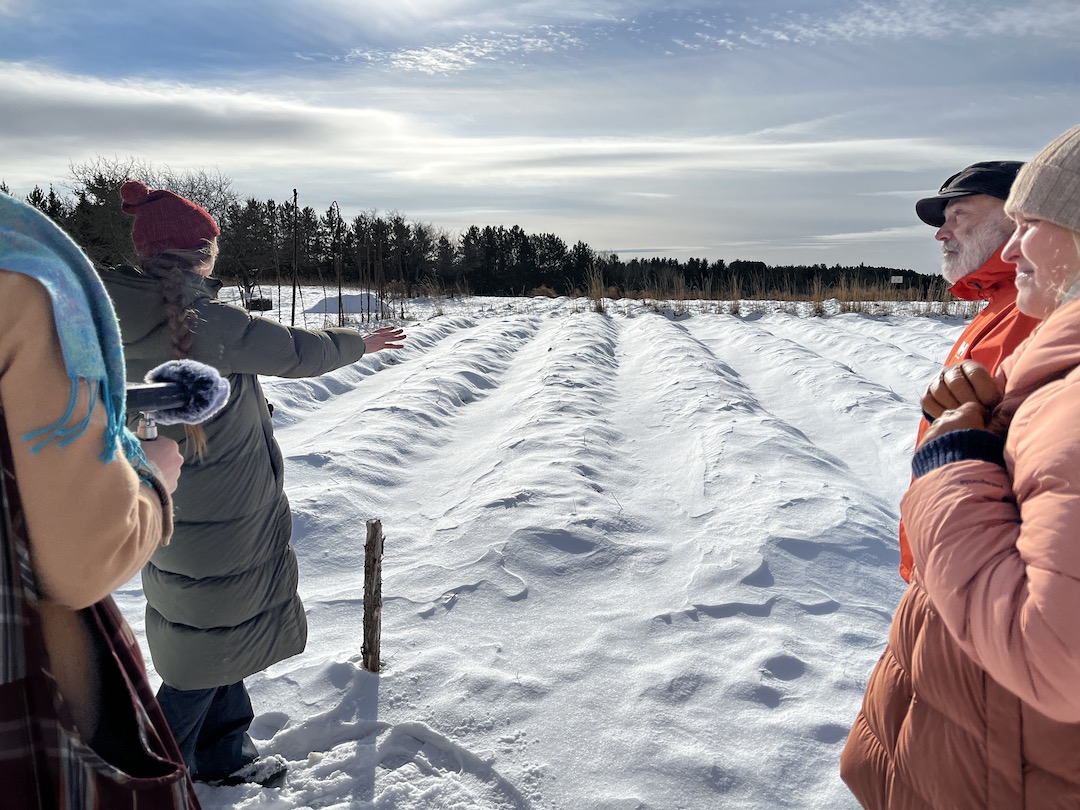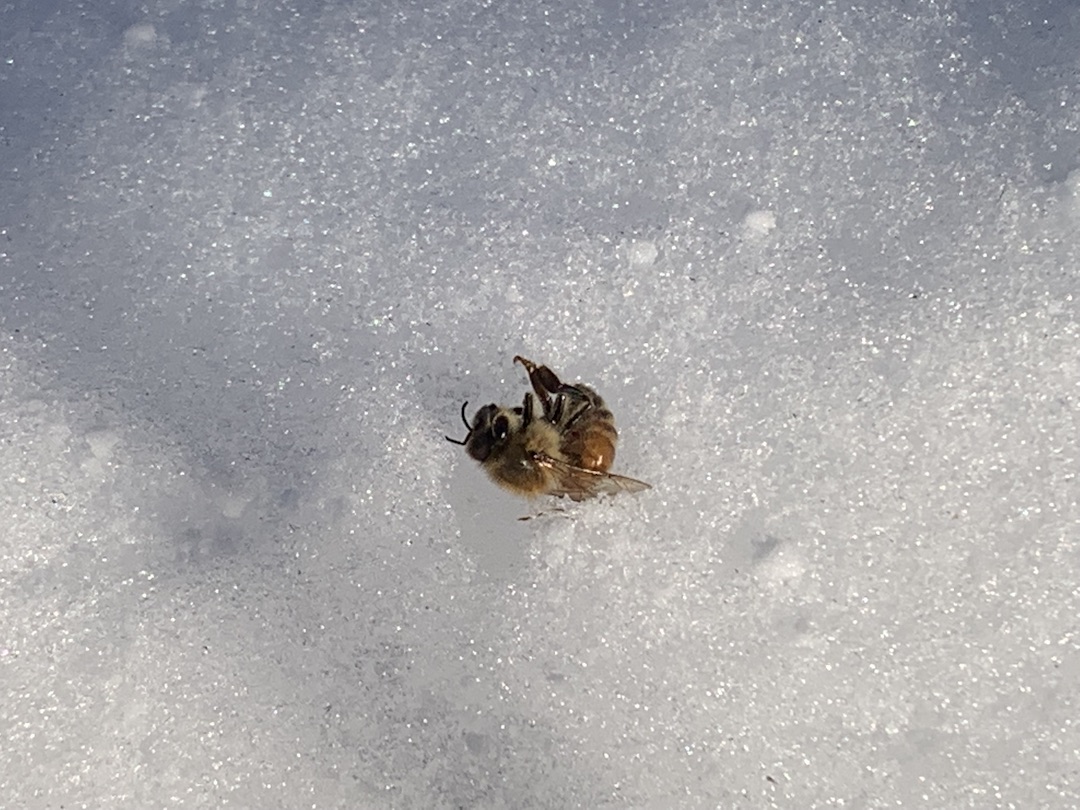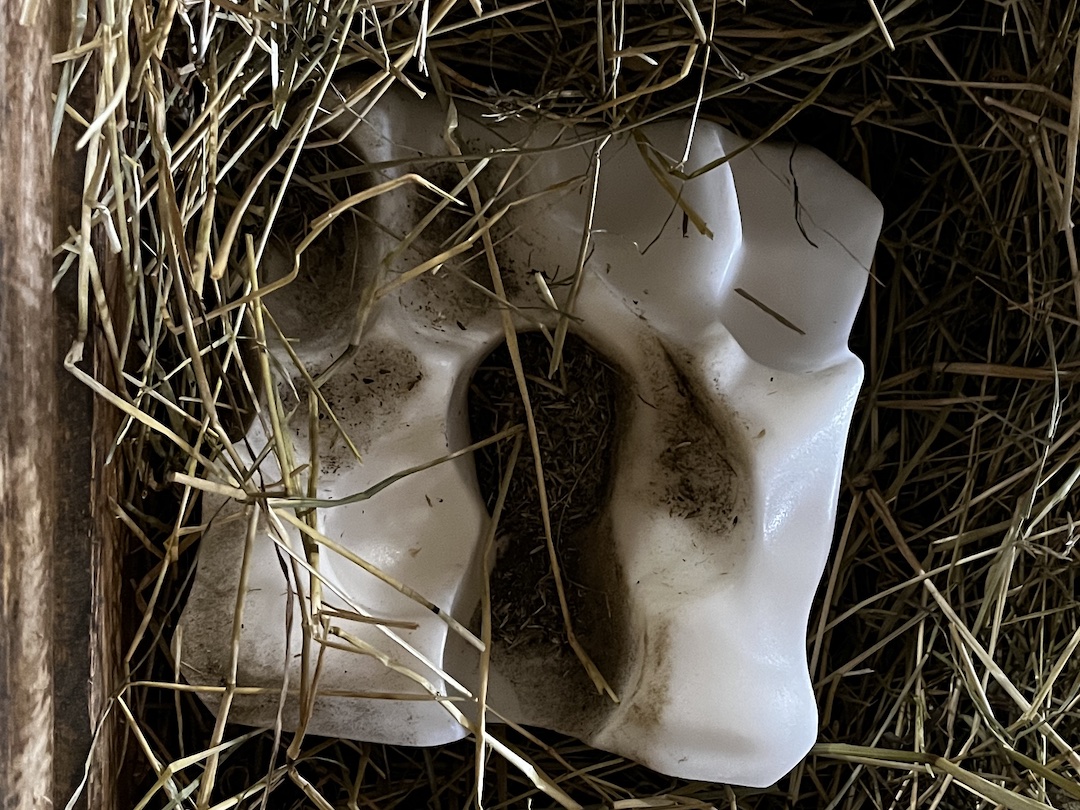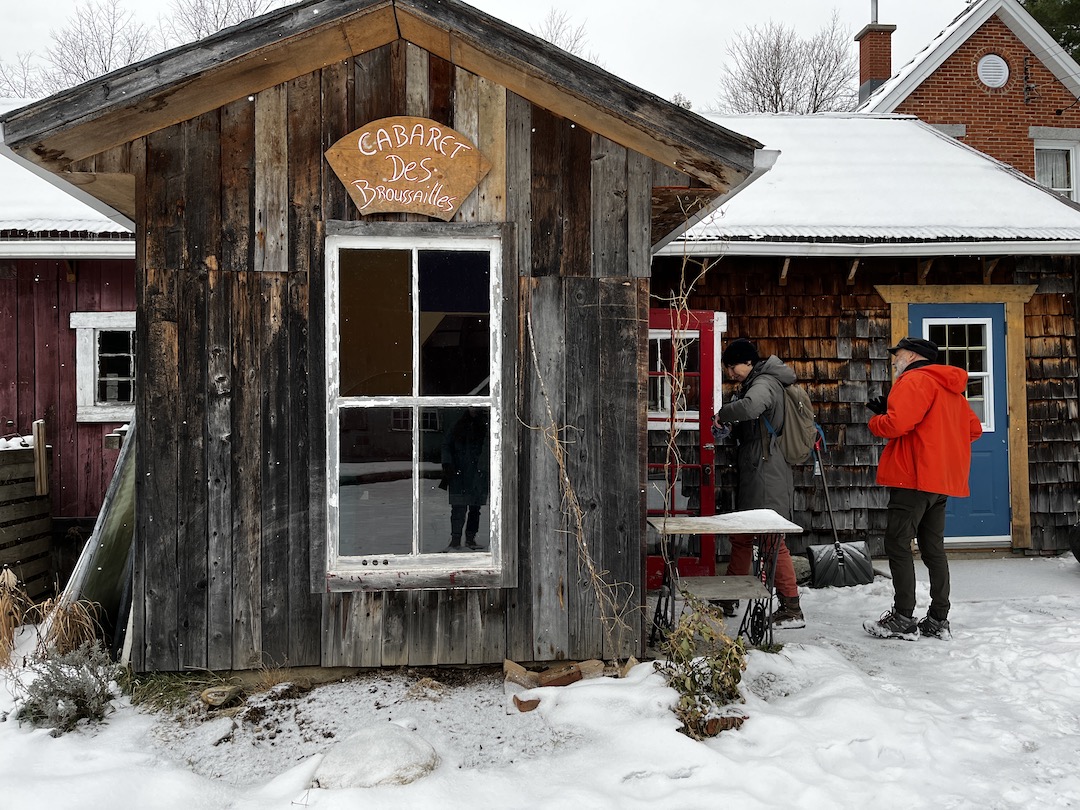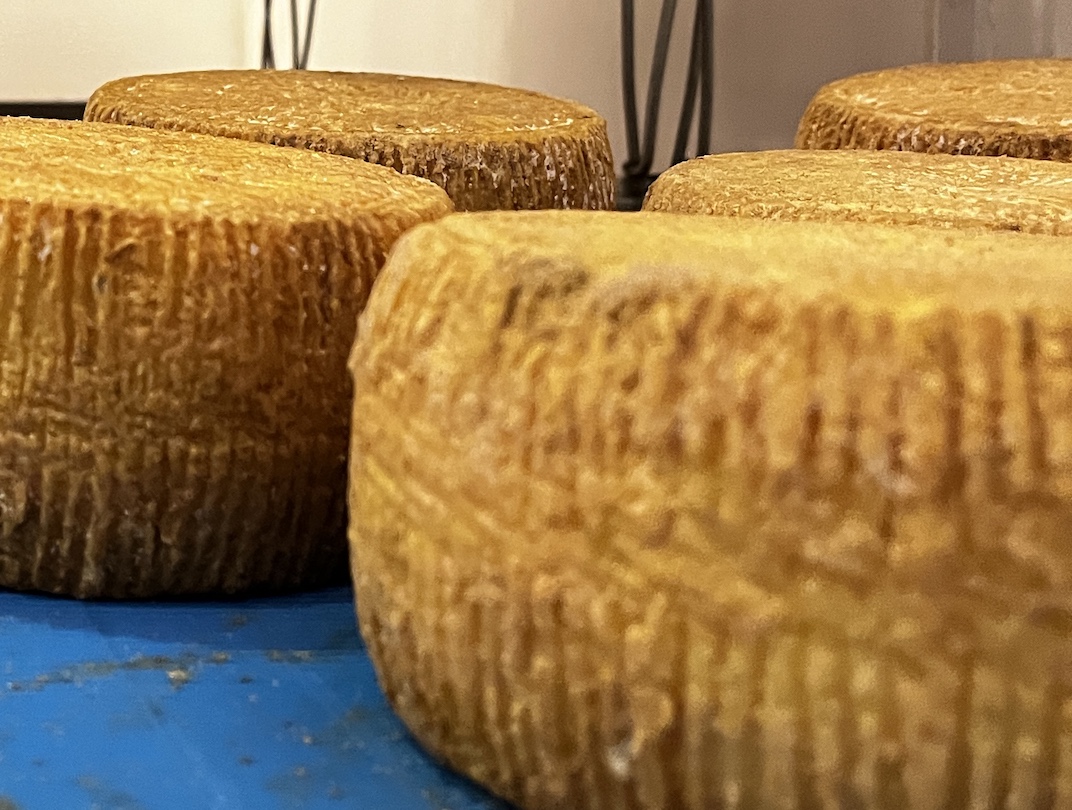Gentiane Bélanger, Noémie Fortin & Camila Vásquez –
November, 2022
Canadian artist Bill Burns has been invited to embark on a lengthy inquiry as part of his 2022–23 residency at the Foreman, during which he will adapt his work The Country Singer, the Salt, the Milk, the Goats to the local context.
His practice is characterized by an eclectic exploration of how different forces come together: nature and culture, animal and mechanical, organic matter and economic fluctuations. This entanglement of natural and cultural systems takes the form of projects that flirt with surrealism as they oscillate between drawing, performance, artist’s books and installation. Burns connects cultural practices—particularly singing, music and drawing—with artisanal and industrial production, mixing objects and heterogeneous materials to bring out new avenues of meaning that erode the epistemological gap between the realms of nature and culture. Previous projects have ranged from creating a travelling enterprise specializing in equipment and prostheses for small animals undergoing habitat loss (Safety Gear for Small Animals, Inc.) to producing an interactive voice response system providing information on plants and wildlife (0.800.0FAUNA0FLORA), mounting aerial banners dedicated to important art world luminaries (Art World Celebrity—Flying Banners) and conducting a children’s choir whose repertoire consists of canine, watercraft and aircraft sounds (Dogs, Boats and Airplanes—Choir).
Thus, it is not surprising to see a mix of Georgian songs, honey, salt and goats in his current work, as the title of his ArtLab residency suggests.
During a first stay in residence, the artist and curators visited various local agricultural initiatives, including the Bishop’s University Educational Farm, the École des Enfants-de-la-Terre beekeeping project, the Ferme Les Broussailles goat farm and the fields at Ferme L’Étincelle. Each meeting led to rich and varied conversations that gave Burns a chance to immerse himself in his surroundings and deepen his knowledge of the living‑world aspects that his research addresses: namely, bees, goats, sheep, native fruits and vegetables, circular economic systems, farmers, musicians and cabaret nights.
At the Bishop’s University Educational Farm, professor and researcher Dr. Jane Morrison organized a tour of the snow-covered potato, switchgrass and native plant fields. Throughout the year, these cultures serve as a living lab for faculty and students in the Sustainable Agriculture and Food Systems programs. The farm hosts various research and experiential learning projects in agroecology, particularly in relation to potato cultivation and plant cover diversification.
Beekeeper Simon Gaboriau is behind the educational beehive project at École des Enfants-de-la-Terre in Waterville. From kindergarten through Grade 8, each class interacts with the hive in the school gardens, either by getting involved in bee care or in harvesting, processing or marketing the honey. A parent at the school himself, Gaboriault explained how he accompanies school groups and maintains the hives over the years.
Over in Martinville at Ferme Les Broussailles, the goats are lovingly cared for by owners Julie Labrecque, Jean-François Clerson and their children. If things are humming at the cheese dairy, whose products are sold directly onsite and in many businesses across the region, the farm’s day-to-day is no less lively. Labrecque told tales of balfolk (traditional) dance nights and cabarets, rural Olympics, and Christmas choirs that bring together an entire community of cheese lovers.
Each spring, the goats make their way to the pastures of another farm, at the Ferme L’Étincelle in Johnville. Owners and artisanal producers Sarah Morin and Alexandra Blanchette apply their pro-biodiversity and resilience-based outlook to the vegetable boxes, eggs and meats (free-range chicken and kid) they produce. Highly involved in their community, they discussed their motivation for raising awareness about where food comes from and the importance of supporting local agricultural networks.
